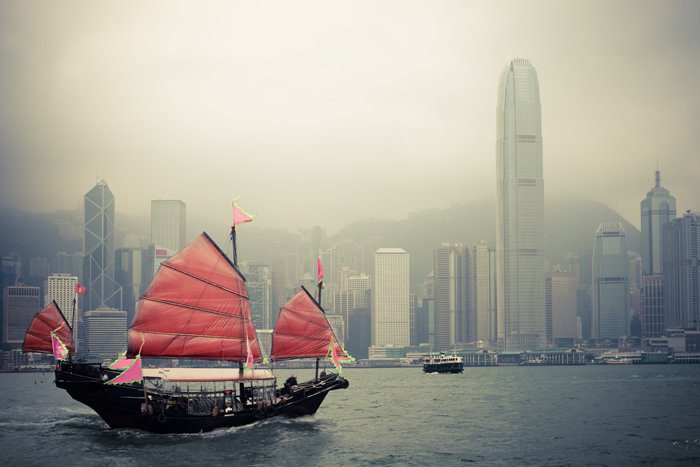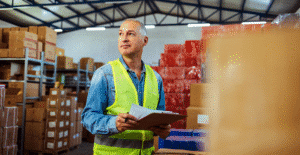According to Austrade, China has been Australia’s largest trading partner since 2009, with two-way trade valued at over $150 billion in 2014. This accounts for 23% of Australia’s total trade with the world. China is not only our number one export market it is also our number one import supplier, and largest market for exports of agriculture, resources and services sectors
If Australian and New Zealand businesses ever needed an argument why they should be exporting to Asia, they should inspect the recent quarterly terms of trade. Despite its (not unexpected) slowdown, China’s annual economic growth rate of around 6-7% continues to outstrip Australia’s modest 3.5%, making the question not when, but how to export.
The Free Trade Agreement signed between Australia and China last month is expected to provide a financial shot in the arm for Australian companies.
New Zealand was the first western country to sign a comprehensive free trade agreement with China in 2008. Since that agreement, NZ/China bilateral trade has ballooned to the extent that China is now easily NZ’s largest trading partner.
But while the Free Trade Agreement is expected to open new markets, it might also expose a structural weakness – that there is a crisis in confidence about doing business in Asia.
William Buck’s most recent CFO Pulse survey found that 60% of CFOs of mid-market enterprises did not believe they had the appropriate skills to do business in Asia ‚Äì and nearly 90% felt they were under-prepared for the export challenge.
The statistics are at odds with the reality ‚Äì 34% of the respondents were already doing business in Asia at the time, while another 31% acknowledged that they needed to start exploring ways of working with the region in general and also the world’s largest consumer market.
As lucky number 9 in Chinese culture means ‚Äòlongevity and eternality’ we’ve put together a checklist of 9 key questions you should ask before embarking on your long and illustrious career in Asia.
Do you have a strategy?
Our first question to any client who approaches us about doing business in Asia is why? It shouldn’t just be a case of riding on the coat tails of a free trade agreement or ‚Äòdoing it because everyone else is’ ‚Äì it has to be based on a well-researched and documented business plan. Asia can be a complex place to do business, so any investment needs to make good financial sense.
Do you respect the market?
Asia is not a market where you can offload surplus stock or expect to make big margins on products that are unprofitable in Australia. Asian consumers are sophisticated and savvy and they do their research before buying. So Australian businesses need to show genuine respect for the culture, understand consumer trends and be open to learning.
Are you clear about your target audience?
Asia is just too big for a scatter-shot strategy. Think carefully about the target audience your product is aimed at and then take small steps by starting in one country to test the market. In China, a single region or city ‚Äì often with populations bigger than Australia ‚Äì should present enough challenges to your marketing and distribution team, so it’s best to have a focussed approach.
In fact William Buck strongly suggest you target a Tier 2 City first to refine, repackage and redefine the price, distribution model and also to overcome regulatory hurdles.
China also has industry specific cities so you can see what else competitors are doing by visiting those cities that use the same or similar technology.
Nanning of Guangxi, is a prime example being a scientific agriculture based city of approximately 9million people, as such it provides a good base to test any agriculture or horticultural based exports and related industries.
How much time are you prepared to spend on relationship building?
Asian business is not linear and results oriented. After 2000 years of Confucian and Taoist teaching, Chinese business people want to build a relationship before making a sale. “Mianzi” or keeping face is far more important than profit, which is reflected in the maxim: xian zuo pengyou, hou zuo shengyi (friends must be made before the deal). Trust, integrity and loyalty are not built on once a year visits and emails. If you are serious, expect to travel often and embrace the cultural aspects of Asian life as well as the business customs ‚Äì and reciprocate when your clients come to Australia.
Will you open an Asian office?
While Australian businesses can build their market understanding by employing experienced Asian staff, nothing beats a permanent presence on the ground in Asia. By building strategic alliances with well-established and credentialed Asian businesses or opening an office that employs local experts, you will gain more traction than trying to control everything from Australia.
But choose your base carefully. Different countries have very different rules around expatriate workers, language difficulties and financial restrictions. And don’t overlook Double Tax Agreements..
Have you undertaken due diligence?
Lost inventory and failure to get paid are two common “bad luck” stories we hear from exporters. Before any product moves offshore you need to have put in place effective quality control and reporting mechanisms and be confident about the financial credentials of your distributors and customers.
We would recommend engaging an advisor like William Buck to provide a pre export credit check of the purchaser which will significantly reduce the risk of not being paid.
Do you understand the legal and tax system?
Language and cultural misunderstandings can often lead to very expensive mistakes. You need to seek out qualified legal advice on issues such as patent protection and intellectual property security. Taxation rules are also incredibly complex and can be very costly for newcomers.
Have you researched the regulatory framework?
Every country has its own product registration, inspection and quarantine procedures. But there are also a number of food and drug certifications, product standards, labelling laws and tariffs and duties.
For example, food based exporters to China the rules are incredibly complex. You should plan on an at least a 12 month pre-clearance process before your exports can be imported in China.
Fortunately you don’t have to get up to speed on this detail by yourself ‚Äì William Buck has skilled advisors in this area with many years of experience.
Have you spoken to the government?
Red tape and bureaucracy often scares SMEs away from seeking government advice. In the case of doing business in Asia, there is no better place to start than by contacting Federal and State trade development offices. Austrade and the NZTE have long established networks in Asia with a network of ASEAN and China free trade agreements to work with. They can open doors for you and your business – you will also immediately achieve respect if introduced by a government official, particularly in China.
The Asian economy is sophisticated and rapidly evolving so it’s important to surround yourself with a team of advisors who can support your business plans ‚Äì now and into the future. If you’re serious about doing business in Asia, speak to a professional advisory firm, with established offices and relationships in Asia.




































